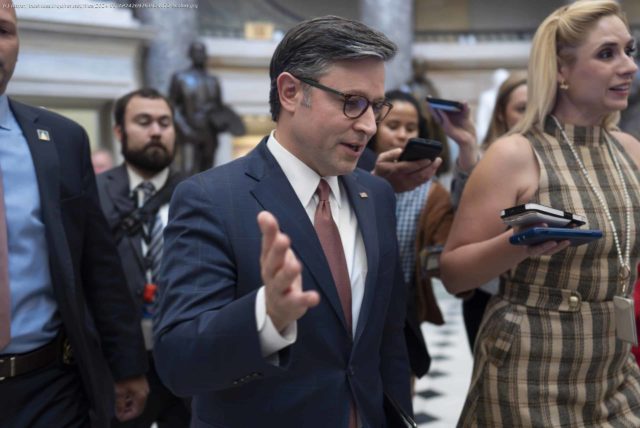Array
US Congress on Wednesday passed a temporary measure that keeps government agencies funded into December, avoiding a shutdown for now while punting final spending decisions until after the Nov. 5 election.
The Senate approved the measure by a vote of 78-18 shortly after the House easily approved it. The bill generally funds agencies at current levels through Dec. 20. But an additional $231 million was included to bolster the Secret Service after the two assassination attempts against Republican presidential nominee Donald Trump. Money was also added to aid with the presidential transition, among other things.
The bill now goes to President Joe Biden’s desk to be signed into law.
“This bipartisanship is a good outcome for America,” Senate Majority Leader Chuck Schumer said moments before the vote. “I hope it sets the tone for more constructive, bipartisan work when we return in the fall.”
House Speaker Mike Johnson, R-La., billed the measure as doing “only what’s absolutely necessary,” a statement directed at members of his own conference concerned about spending levels.
Still, it was a no-go for some Republicans, which forced House GOP leadership to rely on Democratic votes to pass the bill through a process that requires at least two-thirds support from voting members. Johnson said the only alternative to the continuing resolution at this stage would have been a government shutdown.
“It would be political malpractice to shut the government down,” Johnson said. “I think everyone understands that.”
The House floor was largely empty during debate on the measure. Rep. Chip Roy, R-Texas, was the lone critic speaking out, saying, “We end up in a vicious circle every year, the same vicious circle.”
Lawmakers in both chambers are anxious to return to their home states and districts to campaign, smoothing the path for passage of a temporary funding fix. But more arduous fiscal negotiations await them at the end of the year.
Under terms of a previous deal to avoid a federal default and allow the government to continue paying its bills, spending for defense and nondefense programs would rise 1 percent next year.






